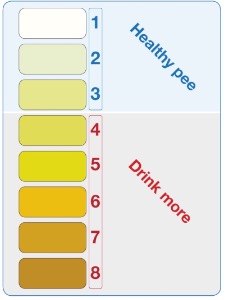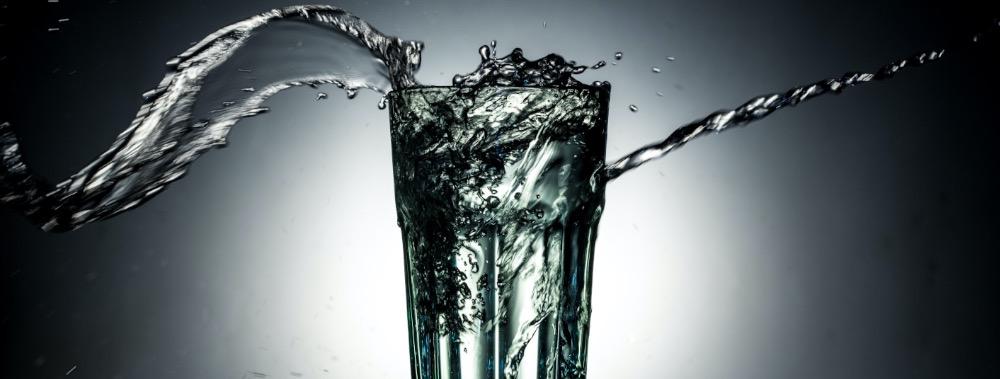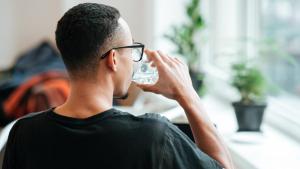Why do we need water?
The human body is 60% water and it essential for all of the systems in the body to work. Our brain is around ¾ water and even our bones are over 30% water. Water is needed for digestion of food, to flush waste out of the body, to keep blood flowing to deliver oxygen and nutrients to muscles, to lubricate joints, act as a shock absorber for the brain and spinal cord, for temperature regulation and many other functions.
What happens if we don’t drink enough?
If you are dehydrated you will start to feel ill with a headache, dizziness, tiredness and trouble concentrating. You will also feel extremely thirsty – which is your body’s way of telling you you need to drink. Long term dehydration causes problems with your digestive and urinary systems, such as constipation, urinary tract infections and kidney stones.
Severe dehydration can be life-threatening. Older people can be prone to not drinking enough and can become ill from dehydration quickly. Babies are also especially sensitive to the effects of dehydration as they are so small.
You can easily tell if you are starting to become dehydrated by looking at the colour of your urine. The NHS urine colour chart is a good guide – the lighter your urine the more hydrated you are, so try and keep it in the healthy range.
How much do we need?

Adults need to drink 1.5-2L of water a day, which is 8-10 standard glasses (200ml). Children are smaller and don’t need quite as much, around 6-8 glasses, but it is important for them to stay hydrated to help them concentrate at school. Extra water is required to meet the demands of pregnancy and breastfeeding.
One of the functions of water is to cool our body down when needed through sweating. That’s why we sweat more when it’s hot or when we exercise. That means that we need to drink more to compensate for the water lost through sweat, so we don’t become dehydrated.
What can we drink?
All types of water (tap, filtered, bottled, sparkling), diluted squash and cordial, fruit juice, milk, tea (including green tea and herbal and fruit teas) and coffee contribute to your hydration. Tea and coffee contain caffeine which makes you produce slightly more urine, but drinking them still provides you with more water than you lose.
You can also get some extra water from fruit and vegetables with a high water content, such as tomatoes and melons.
For more information on hydration and water
https://www.bda.uk.com/resource/the-importance-of-hydration.html
https://www.nhsinform.scot/campaigns/hydration
https://www.usgs.gov/special-topics/water-science-school/science/water-you-water-and-human-body
Author

Dr Susi Jennings - Senior Lecturer and Unit Leader


